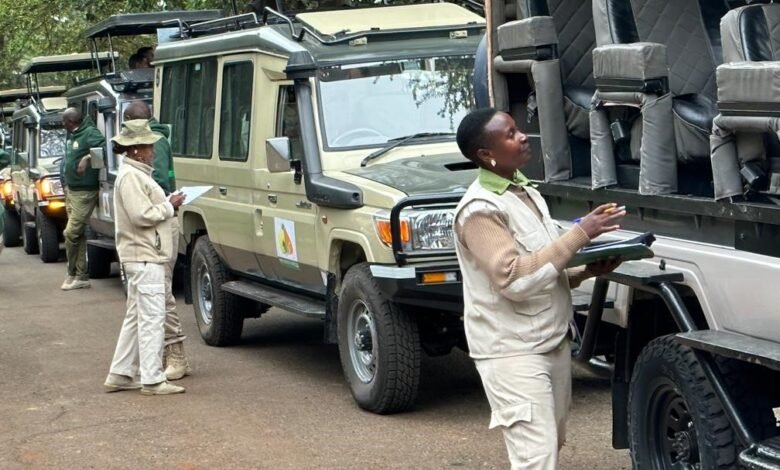
Starting Wednesday, October 1st, 2025, Kenya will implement a new schedule of conservation fees for entry into its national parks, reserves, and sanctuaries. The new regulations, detailed in Legal Notice No. 160 of 2025, represent the first comprehensive review of park fees in 18 years and are designed to bolster the financial sustainability of wildlife conservation through a modernized, digital-first approach.
The Kenya Wildlife Service (KWS) has confirmed that the transition will be managed seamlessly through the government’s eCitizen platform, ensuring that all prior bookings are honored.
Digital Payments and Transition Period
A key aspect of this rollout is its integration with Kenya’s digital services platform, eCitizen. The Director General of KWS, Prof. Erustus Kanga, has assured travelers and tour operators that the system is prepared for the change.
In a crucial clarification for those who have already planned their trips, KWS says it will honor all payments made via eCitizen before the announcement of the new fees. The revised rates will only apply to new bookings made for park visits on or after the October 1st implementation date. This approach aims to prevent disruption for tourists and residents who had pre-paid for their excursions.
The new regulations are the result of a year-long consultative process with stakeholders in tourism and conservation. The Ministry of Tourism and Wildlife stated the review was necessary to cover the rising costs of managing these protected areas and to enhance the overall visitor experience, keeping Kenya’s offerings globally competitive.
New Fee Structure: A Snapshot
The new fee schedule is tiered based on the visitor’s residency status and the specific park. The regulations define several categories of visitors:
- East African Citizen: A citizen of a country within the East African Community.
- Resident: A non-citizen residing in Kenya with a valid residence permit.
- African Citizen: A national of any African country outside of the East African Community.
- Non-Resident: A national of any country who does not fall into the above categories.
Here are the new daily access fees for adults at some of Kenya’s most popular parks:
| Park | East African Citizen (KES) | Resident (KES) | African Citizen (USD) | Non-Resident (USD) |
| Nairobi National Park | 1,000 | 1,350 | 40 | 80 |
| Amboseli National Park | 1,500 | 2,025 | 50 | 90 |
| Lake Nakuru National Park | 1,500 | 2,025 | 50 | 90 |
| Tsavo East & West Parks | 1,000 | 1,350 | 40 | 80 |
The regulations also provide detailed fee schedules for children and students, various park packages, camping, and special activities.
Tech in the Wild: Drone and Filming Fees
Reflecting the increasing use of technology in tourism and content creation, the new regulations introduce specific charges for modern equipment.
Operating a drone now requires a license from the Kenya Civil Aviation Authority and incurs a daily fee per park. The rates are:
- East African Citizens or Residents: KSh 5,000
- African Citizens or Non-Residents: USD 300
Similarly, fees for commercial filming and photography have been updated and are based on the size of the crew, ranging from KSh 16,000 (or USD 200) for a small crew of 1-5 people per week, up to KSh 40,000 (or USD 500) for a crew of 11 or more.
Exemptions and Other Charges
The regulations maintain a commitment to accessibility for certain groups. The following persons are exempt from paying conservation fees:
- Kenyan citizens aged 70 years and older.
- Children aged five years and younger.
- Persons with a valid disability identification card.
- Registered tour drivers and guides who are members of a registered association.
Beyond entry fees, the legal notice also details updated charges for vehicles, aircraft landings, annual passes, water sports, and special events like weddings or corporate functions held within the parks. For example, a standard tour vehicle with less than 6 seats will be charged KSh 600 per day. This comprehensive update aims to create a sustainable framework for preserving Kenya’s iconic wildlife for generations to come. 🐘






